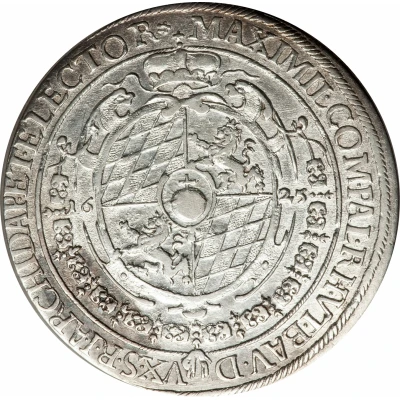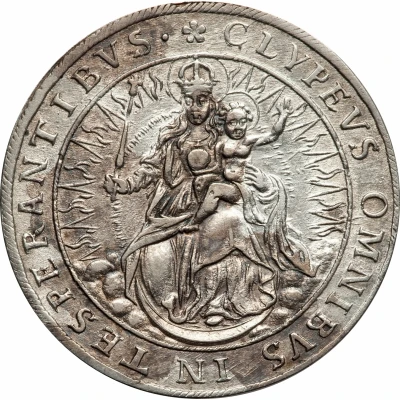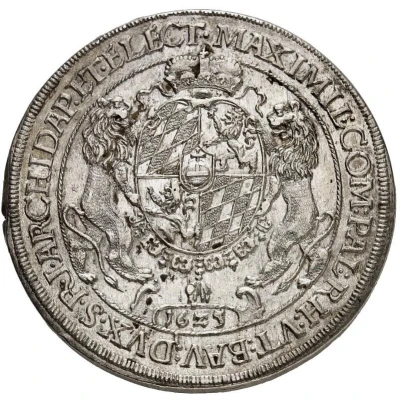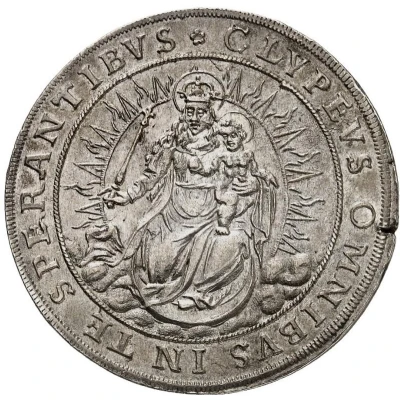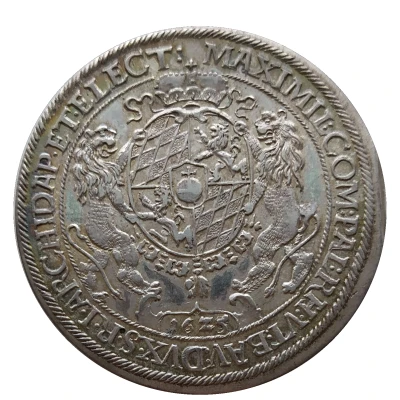
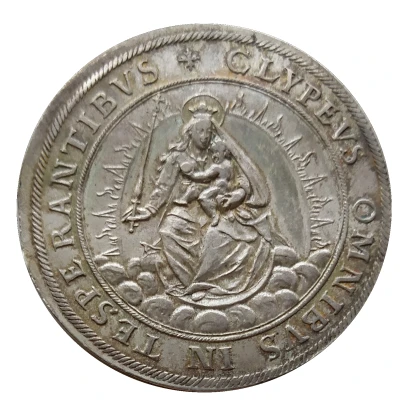

© LoskarZ
1 Thaler Maximilien I "aux lions"
1625 year| Silver (.889) | 29.2 g | 42 mm |
| Issuer | Electorate of Bavaria (German States) |
|---|---|
| Prince elector | Maximilian I (1623-1651) |
| Type | Standard circulation coin |
| Year | 1625 |
| Value | 1 Thaler |
| Currency | Thaler (1623-1752) |
| Composition | Silver (.889) |
| Weight | 29.2 g |
| Diameter | 42 mm |
| Shape | Round |
| Orientation | Medal alignment ↑↑ |
| Demonetized | Yes |
| Updated | 2024-10-05 |
| Numista | N#205862 |
|---|---|
| Rarity index | 92% |
Reverse
Representation of the Virgin and Child, patron saint of Bavaria.
Seated on a waxing moon and clouds, holding a scepter in her right hand and the child in her left arm, face turned towards him; all on a radiant sun.
Latin legends around the edges.
Script: Latin
Lettering: CLYPEVS OMNIBVS IN TE SPERANTIBVS
Edge
Plain
Comment
There is also a version with the Virgin's head turned to the right: KM 197In 1623, during the Thirty Years' War, the Elector Palatine Frederick V was dispossessed of his office, which was transferred (for life, and therefore normally provisionally) to his relative Duke Maximilian I of Bavaria.
However, under the Treaty of Westphalia in 1648, Frederick V's son, the Palatine Charles Louis, regained the electoral dignity with the office of arch-treasurer.
An eighth electorate (that of the Rhine Palatinate) was added on this occasion, the electorate of Bavaria having been perpetuated in the meantime.
Interesting fact
One interesting fact about the 1 Thaler Maximilien I "aux lions" 1625 coin from the Electorate of Bavaria is that it features a unique design element - a lion's head on the reverse side, which gives the coin its name "aux lions" (meaning "with lions" in French). This design was a departure from the traditional coat of arms or effigy of the ruler that was commonly used on coins of that time, and it was meant to symbolize the power and strength of the Bavarian state.
